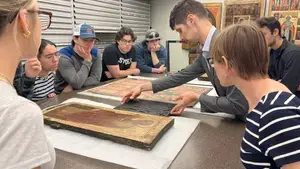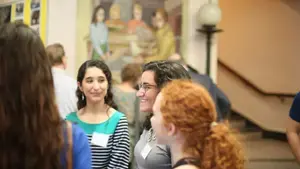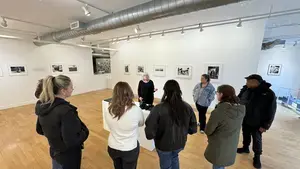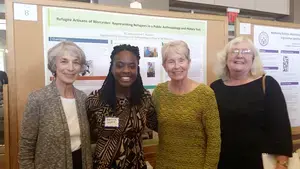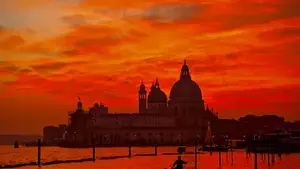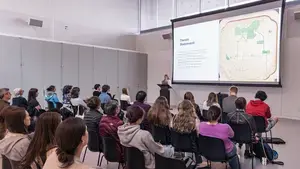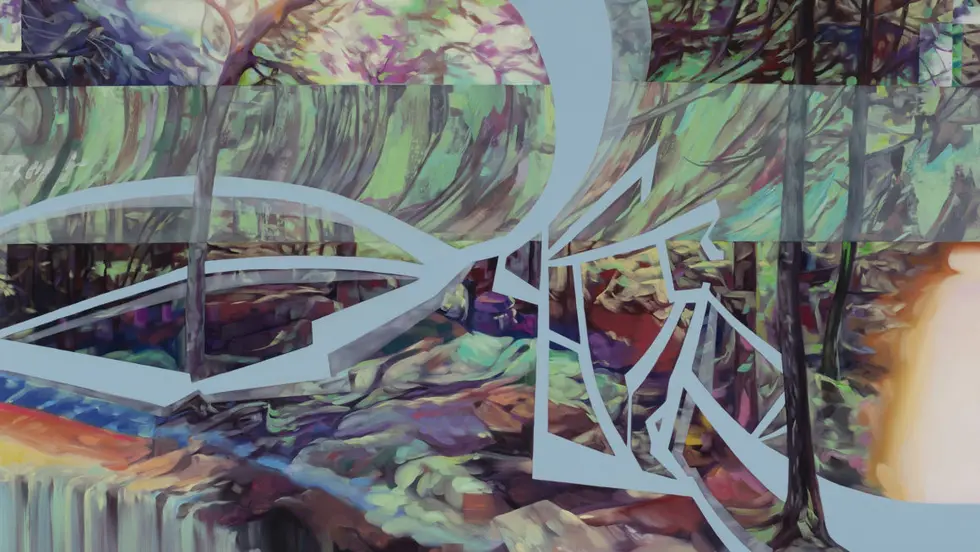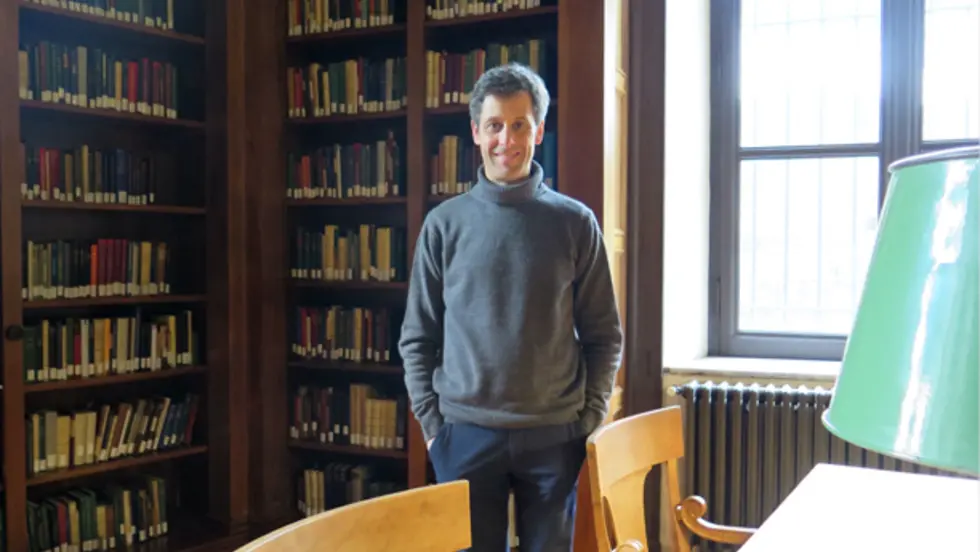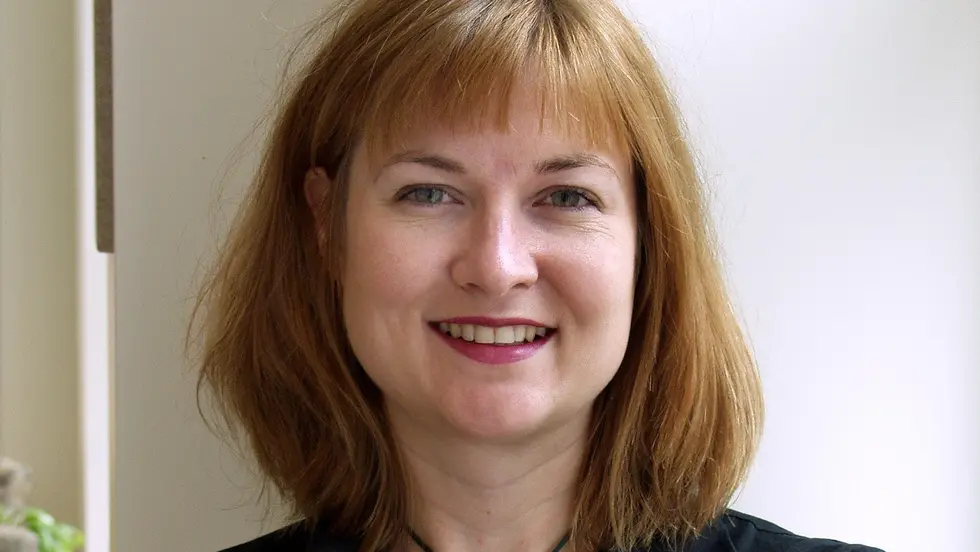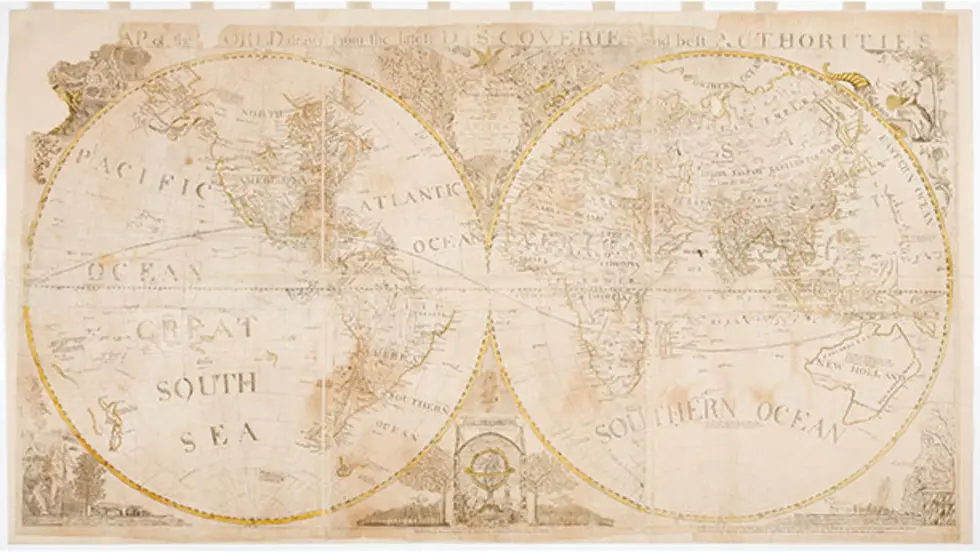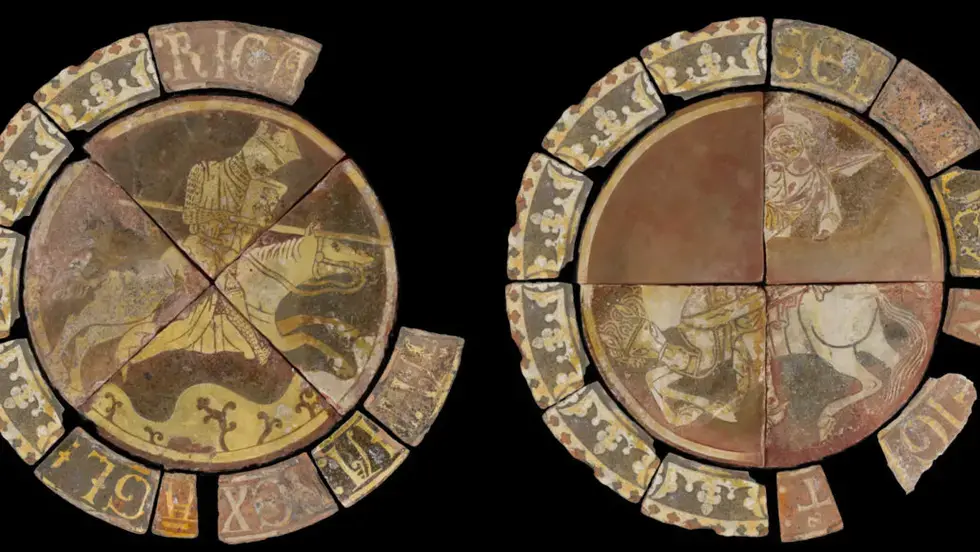
Art History
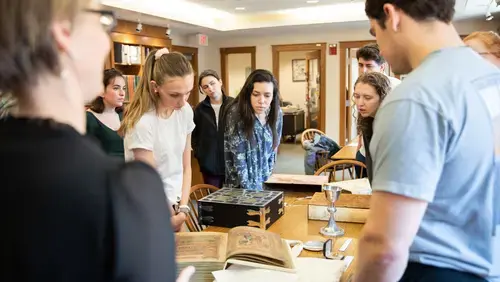
Students in the history of art examine the rich heritage of global artistic and cultural traditions through specialized lecture and seminar courses. Our art history graduates include educators, museum curators and directors, auction house administrators and appraisers, art librarians, historical preservationists, art publishers and grants managers.
Areas of Study
- Studio Art
- Pre-1800 Art (e.g., Renaissance, Baroque)
- Post-1800 Art (e.g., Modern, Contemporary)
- Cross-Cultural Art (e.g., Islamic, African, and the Americas)
- Architectural History
- Museum Studies
Requirements
Major Requirements: Minimum 10 courses
- Introduction to Visual Arts (VAHI 100).
- One studio art course.
- Three courses distributed among the following three areas:
- pre-1800
- post-1800
- cross-cultural
- Additional VAHI courses to reach the minimum of 10 required courses. Montserrat courses in art history are accepted as the equivalent of an elective.
- Fourth year majors must also complete the Concentration Seminar (VAHI 400).
Students interested in the art history major should complete the introductory level art history course early in their program. The department encourages art history majors to study abroad during their junior year.
The art history minor is available to students in any major, including the studio art major. Art history minors have a choice of two tracks: History & Theory or Museum Studies. Both tracks require six courses. Art history majors are eligible to also minor in studio art.
History & Theory Track (Minor requirements: minimum 6 courses)
- Introduction to the Visual Arts (VAHI 100).
- Three courses distributed among the following three areas:
- pre-1800
- post-1800
- cross-cultural
- Two VAHI electives.
Museum Studies Track (Minor requirements: minimum 6 courses)
- Introduction to the Visual Arts (VAHI 100).
- Museum Studies (VAHI 150).
- Three intermediate or upper-level VAHI courses.
- Internship (as approved) VAHI 420.
Opportunities
Visiting Artists and Excursions
The Department of Visual Arts sponsors many arts enrichment programs. Every semester we host numerous visiting scholars and practitioners addressing a broad array of topics related to both historic and contemporary art and architecture. Most courses in the department make frequent use of our major local art institution, the Worcester Art Museum. In addition, the department organizes regular field trips to major museums, galleries and sites across the region, including not only Boston but also New York, New Haven and Hartford.
Community Engagement
Our students engage the campus and surrounding community by presenting personal and collaborative art exhibits and by providing tours of local museums and special exhibitions. We also encourage our students to pursue internships in local museums, galleries, preservation agencies and architecture firms. In addition, some of our classes offer community-based learning experiences, encouraging students to engage with the history and people of Worcester in new and meaningful ways.
Student Art Society: Coalition of Creatives
The Student Art Society: Coalition of Creatives is a student-run organization that seeks to provide increased access to enjoy student art on campus through fundraising events, monthly exhibitions and weekly meetings that foster new relationships.
Internships
The rich resources of our region, especially in Worcester and Boston, provide students with many exciting internship opportunities. Recent examples include: Martina Umunna ’18, special events intern for Smithsonian Associates, Smithsonian Institution, through the Washington Semester Program; Xherd Aliko ’20, photography and marketing intern, NYSportsScienceLab, through the New York Semester Program; Michela Caffrey ‘19, studio art intern, Advanced Studies Program, St. Paul’s School.
Study Abroad
Our students have many opportunities for study abroad programs. Many of our majors have gained valuable new insights by taking studio courses and courses in the history of art and architecture at Siena Art Institute and at Temple University Rome. The Maymester program also offers students intensive four-week courses abroad taught by our faculty. Recent Maymesters taught by Visual Arts faculty include a course on geology and architecture in Rome, and a course on art, architecture and environmental studies in Venice.
Research
Interested students can apply for summer research opportunities in both the history of art and studio. Our students have also worked with faculty on research projects in coordination with the J.D. Power Center for Liberal Arts in the World.
Meet your Department Chair

